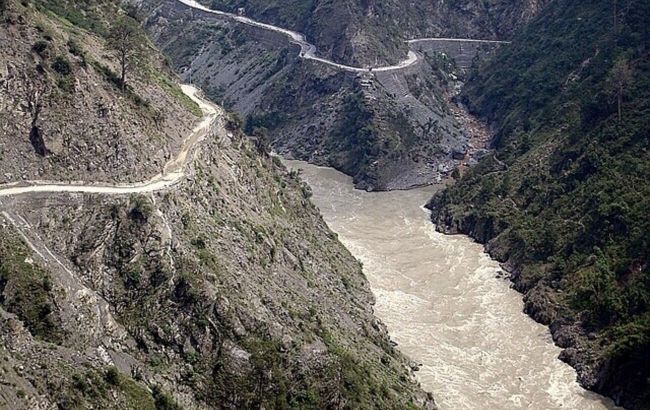India stops water flow through dam on Pakistan border
 Photo: India has cut off water supply at the border with Pakistan (Getty Images)
Photo: India has cut off water supply at the border with Pakistan (Getty Images)
India has blocked the flow of water at the Baglihar Dam on the Chenab River following a terrorist attack in Jammu and Kashmir. The move may further escalate tensions with Pakistan, according the Times of India.
India stopped the water flow through the Baglihar Dam after suspending the Indus Waters Treaty.
The decision also includes the possibility of similar actions at the Kishanganga Dam on the Jhelum River.
Here is the English translation of the news text in a natural and formal tone, preserving the structure:
According to the publication’s sources, these hydroelectric plants are of strategic importance to India, as they allow the country to control the timing of water releases, which could significantly affect water resources in the region.
India’s decision followed a terrorist attack in Pahalgam, Jammu and Kashmir, in which 26 people were killed, most of them tourists.
The attack became a catalyst for suspending the long-standing Indus Waters Treaty, signed in 1960 with the World Bank’s mediation, which regulates the use of the Indus River and its tributaries between the two countries.
The Baglihar Dam, located in Jammu, has long been a source of tension between India and Pakistan.
Pakistan has repeatedly appealed to the World Bank for arbitration over the dam, claiming that its construction violates the terms of the treaty.
Specifically, Pakistan argues that Baglihar negatively affects water resources used for irrigation and other purposes.
The Kishanganga Dam, located in northern Kashmir, is also the subject of legal and diplomatic disputes.
India-Pakistan conflict
Militants attacked a group of tourists in the Kashmir region. According to eyewitnesses, the terrorists targeted individuals based on their Hindu faith.
India accused Pakistan of organizing the attack. New Delhi also temporarily withdrew from the Indus Waters Treaty with Islamabad.
More details on the conflict between the two nuclear powers can be found in RBC-Ukraine’s report.

